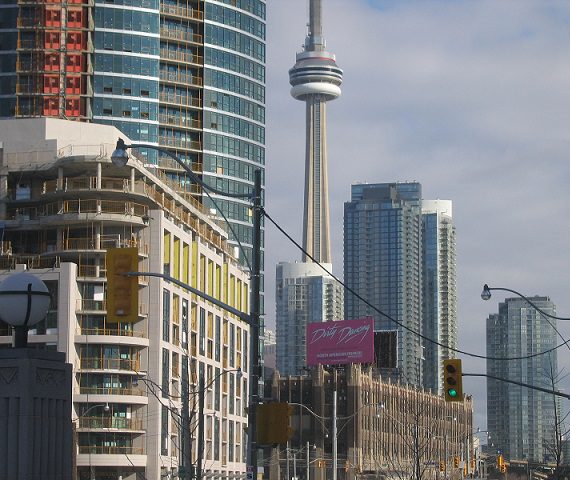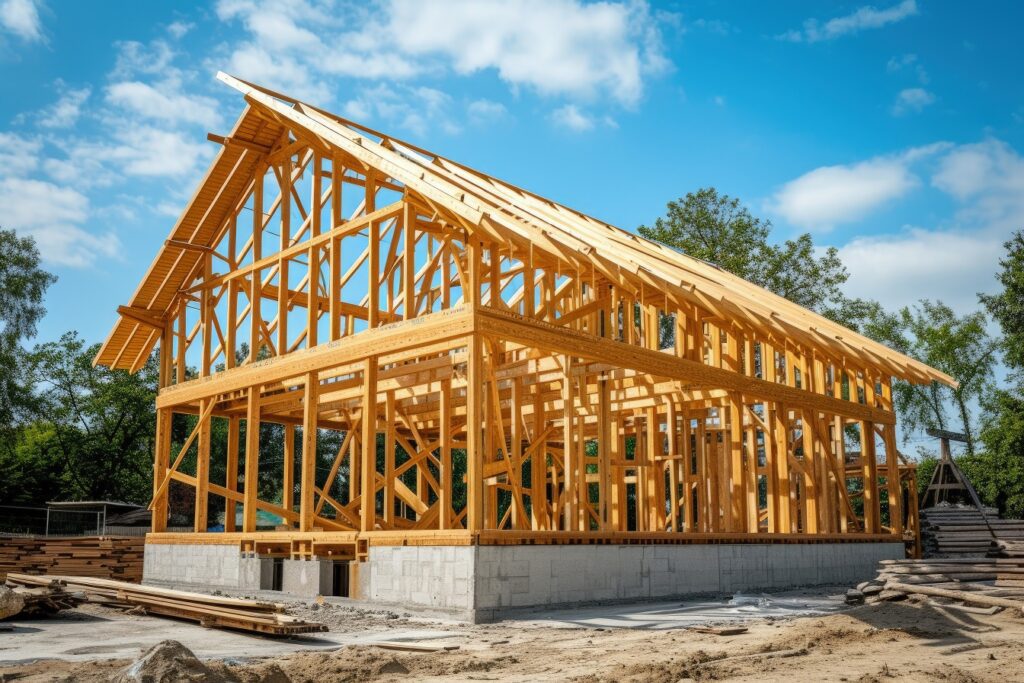Aside from a third and fourth land transfer tax, is there anything that could kill the condo market?
How about Toronto city council DOUBLING development charges? Do these people have ANY idea how to run a city?

Do any of you suffer from that constant affliction that makes you think you’re supremely smarter than certain people?
We all do it.
We’re all far, far better general managers of sports teams than the actual GM’s in place. We all know what’s best for the Leafs and the Jays, and we all balk at trades that we wouldn’t make.
We openly talk at parties about who should have been chosen to play the role of Christian Grey in the movie adaptation of the book, or what name the “Royal Couple” should have chosen over “George.”
And as far as Toronto politics go, well, we all know best.
At least, we know better than those people we’ve elected, in a democratic process, to represent us.
More often than not, we’re in no position to judge or critique. We’re not privy to the inner workings of Toronto; the budget, finances, contracts, and such.
But then other times, we feel as though we do, in fact, know best.
For me, this is one of those times.
Last week, it was announced that Toronto city council is considering DOUBLING current development charges for condominiums.
For those of you not familiar with the process, consider this: every single condo unit built in the city of Toronto comes with a fee, paid to the city of Toronto. Two-bedroom units have development fees in the $12,000 neighbourhood, and one-bedroom units are around $7,500.
Toronto city council, always on the lookout for new tax revenue, has determined that maybe the Golden Goose can, in fact, be platinum! And thus, their idea to simply DOUBLE fees.
Hey, let’s not forget that land transfer tax was effectively doubled a few years back, when Toronto city council looked at the tax that the provincial government charges, as if it were a hamburger on somebody’s plate at a restaurant, and said, “Wow, that looks really good! I’ll have the exact same thing.”
Land transfer tax DOUBLED for consumers, although the tax is collected half by Ontario and half by Toronto.
In the case of the development charges for condos in Toronto, ALL that tax revenue will go to the city.
So what’s the problem?
Am I now sticking up for developers?
No.
The problem, is that these fees are always passed on the the consumer (the condo buyer) by the developer, whether up front, after the fact, built-in, disclosed, or hidden.
One way or another, the buyer of the condo pays these fees.
Do you think it would happen any other way?
Developers, with their fancy lawyers, 80-page contracts, fine print, and ability to prey on the weakest and most naive segment of the buyer pool (ie. those that buy pre-construction condos), have had no issue passing development fees onto the condo buyers, nor will they have an issue in the future.
But the basic tenets of supply and demand tell us that this presents a major, major threat to the health and safety of the condo market.
Consider that when you buy a pre-construction condo for $300,000, it can cost you a LOT more than that in the end. The levies, fees, charges and other synonyms for “costs” can add up real quick, and if you Google “closing cost nightmare,” you’ll find some sad saps who were hit with costs in the hundreds of thousands by developers who were shrewd with their fine print. So in Toronto, that $300,000 condo could push $320,000 upon closing.
So what is the price sensitivity of today’s young condo buyer?
What if that $320,000 went to $330,000?
At what point would a buyer stand up and say, “NO!”?
Or, at what point would that buyer stand up and say, “I think I’ll just buy a resale condo, and avoid all these hidden fees”?
That’s what worries me.
Look out your window right now, and I’m almost certain you can see at least one crane. I’m downtown, looking west from my terrace, and I can see seven cranes from here. These buildings are under construction, meaning that the project has been financed, and the developer has likely sold 70% or more of the units.
But what if the developer hadn’t sold 70% of the units? What if the city of Toronto’s decision to DOUBLE development charges were to prohibit or discourage buyers from buying? Well, those projects either wouldn’t move forward, or the units would have to sell for a lot less.
Bottom line: doubling development charges for condominiums could slow the condo market significantly.
I say it “could,” because nothing else has seemed to slow the market in the past decade! Every time something happens that has legions of experts and Joe on the street saying, “This is it – the condo market is going to dip,” we see nothing but increases in price!
Consider the changes that the CMHC made to mortgage rules last year.
You used to be able to buy a condo with 0% down, or even get cash back! Now you have to put a minimum of 5% down, and that comes with punitive insurance premiums that discourage many buyers from entering the market. If you want to buy a second property, you have to put 20% down. And now any property with a price of $1,000,000 or more automatically necessitates a 20% down payment too!
Did these changes slow down the market?
Nope. Not one bit.
Experts said that this could slow the Toronto market and cause prices to drop, but prices kept on rising.
And when mortgage rates increased about 50 basis points last month, did that have an effect?
Not from where I can see. I have fourteen active buyer-clients, and not one of them put off their property search, or changed their search parameters.
So if Toronto city council goes ahead and doubles the development fees that condominium developers pay, will the condo market be affected?
Logic says “yes,” but empirical evidence says “no.”
Logically, it’s just a simple case of supply and demand. The demand would drop as buyers would scoff at the increase, and the prices would drop accordingly.
But as I pointed out above, evidence from mortgage rules to land transfer tax shows that nothing (so far) can stop this increasing condo market.
I do have a better question, however. My question is “why?” Why would city council take such a risk? Why would they risk starting a chain reaction that, logically speaking, could cause the condo market to drop?
The CMHC made their moves last year in attempts to cool the housing market. They were up front about it, and they were hopeful that the changes they implemented would slow a market that they saw as over-heated.
Does Toronto city council have the same plan?
I highly, highly doubt it.
I know I’ve been riding this bandwagon a lot lately, but I just don’t think city council has anything remotely resembling a “plan,” in anything that they do, anywhere, any time. In fact, I think that if you asked the 50-something city councilors to draw a graph with “price” on one axis and “quantiy demanded” on the other, they’d be unable to find equilibrium, let alone explain how the supply and demand curves can shift, and why.
I believe we studied equilibrium on the first or second day of grade-twelve economics. But I digress…
I just wish that Toronto city council would give more reason(s) for their actions, and in this case, I don’t think they’ve thought it through.
An economist or central banker might suggest that fiscal and monetary policy could or should be used to cool a heated market, or stimulate a cool one, but I don’t think a city councilor is in any way qualified to toy with the health of the real estate market.
Do you?































Jeremy
at 8:45 am
Or, at what point would that buyer stand up and say, “I think I’ll just buy a resale condo, and avoid all these hidden fees”?
They already have. I don’t think there is much public sympathy for developers complaining that buyers don’t like getting screwed by shady business practices and one sided contracts. You yourself in past posts have basically said that you think pre-construction condos are not a good investment compared to what they used to be.
If the choice is between taxing developers more and raising property taxes all around, then the former is far more politically palatable to the masses. Especially the Ford Nation suburbanites that already own their house and can’t stand the idea of a single penny of increased taxation. The money has to come from somewhere.
A better question is whether or not the current development fees and taxes paid are reasonable/proportional to the costs of infrastructure and municipal services incurred by that development.
AsianSensation
at 9:06 am
Agreed.
What if development charged should actually be tripled? Where’s the analysis???
The lack of fiscal transparancy of our city is astounding!
Factor in all the infrastructure necessary to facilitate new developments, what should the final costs be per unit/development? Simply saying ‘double it’ does nothing.
In the end let the consumer decide with their $ if the added expenses are justified.
Curiously though DF, what’s the word on the street with regards to profit margin’s on new developments? I see sq/ft prices start from $350 to $550.
Any idea what developers take on average?
Keep on bloggin.
jeff316
at 9:19 am
Where’s the analysis? Fiscal transparency? Simply saying double it? There are 450 plus pages on this issue released to the public!
http://app.toronto.ca/tmmis/viewAgendaItemHistory.do?item=2013.EX33.1
AsianSensation
at 11:36 am
I stand corrected! But as usual the devil’s in the details.
From two links highlights were:
– Plicy discussion has been deffered to Sept 2013.
– Recommended policy would take effect May 2014, in which case increases would be ‘incrimental’ to developers.
Way to kick the can down the road City Council!!!
jeff316
at 4:05 pm
Oh totally agree on the can-kick. No surprise given Holyday and Milczyn are both on the committee.
Frosty Johansen
at 11:36 am
Thanks for the link, Jeff.
Pragmatic
at 8:51 am
David – while I usually agree with you I think that on this one you are completely wrong. Development charges should cover the additional capital costs required to add condos and people to the city – including additional transit (subways), roads, parks and everything else that makes a city livable. At present, Development charges don’t even come close to doing so, and doubling (at least) makes prefect sense to me.
Otherwise, we put ourselves in the situation where growth in the city becomes impossible – additional crowding and strain on city services with an inadequate tax base.
ScottyP
at 12:56 am
What Pragmatic said.
jeff316
at 9:10 am
I guess I’m a little confused as to your critique here.
When you write about City Council you talk about it in such a way that I’m not sure you understand how it works. City Council doesn’t just make this stuff up – they take recommendations from staff, or experts or consultants. (Except when it comes to the Scarborough subway. City council just made that up. 🙂 )
In this case, the action was recommended by an consultant who in theory did their homework to come up with a recommendation. So the reasons for action are there – it’s not like this is something Ford or Adam Vaughan just spat out into a microphone.
The question “are city councillors qualified to toy with the health of the real estate market?”. First, they are qualified by the fact that we elect them to make these decisions. Second, they are qualified because they’re acting on the best advice given to them. Third, they’re probably more qualified than 75% of real estate agents given the role they play in changing, molding, altering the market, to ask a question like that? (Don’t take that as a dig please it’s not a personal comment.)
And if it’s true that the current fees are only covering 40 percent of the cost of infrastructure needed to service a unit, and previous development charges were frozen when the land transfer tax came in, and then slowly phased in, and the condo market has held demand despite previous cost increases (mortgage rates, LTT, etc), and this isn’t some back-of-the-napkin recommendation, then … what’s the problem?
It’s a fundamental question of the role of the City.
What’s more important for the City to do?
Foster the pre-con industry by having existing property taxpayers subsidize the development costs of new condo units?
Or ensure that infrastructure for new condo units is funded from the get-go by purchasers of those units?
ScottyP
at 12:59 am
What Jeff said.
P Maitland
at 9:36 am
Mississaga’s Development Charges for an apartment under 750 sq ft are about $20000. Larger apartments are a bit under $40000.
Toronto’s fees have been drastically lower than average of neighbouring cities for a very long time, and this increase is narrowing that gap (some are even more expensive than the Mississauga numbers). That is a TON of lost revenue during this construction boom, which could have been put towards upgrading Toronto’s infrastructure.
sarah
at 2:49 pm
For a new condominium apartment, the average government charges per
apartment are approximately $67,300, or roughly 16.5% of the average
price for a new condominium apartment.DC’s are only a piece of the puzzle. On average it appears that Developers assume half of the costs and purchasers pick up the other half.
Development Charges
Education Development Charges
GO Transit Development Charges
Municipal Approvals & Permits
Planning Review Fees
Building & Mechanical Permit Fees
Engineering and Servicing Fees
Peer Review Costs
Hydro/Utility Fees
Property Taxes
Parkland Dedication / Cash‐in‐Lieu
Public Art Contributions
Section 37
CMHC Mortgage Insurance
Harmonized Sales Tax (less Eligible Rebates)
Land Transfer Tax
Name
at 2:59 pm
“Did these changes slow down the market?
Nope. Not one bit.”
Except for the sales volume dropping for resales and new condos alike.
David Fleming
at 3:32 pm
@ Name
Sales volume, NOT sale prices.
Darren
at 3:53 pm
A drop in sales volume always happens before a drop in sales prices because people won’t sell their places for “less than it’s worth”.
Name
at 11:59 am
Yes sales volume, which means lower demand, which means lower prices eventually.
Kyle
at 3:00 pm
Lower volume is not the same as lower demand.
Lower volume can be from lower supply. This is in fact what WILL happen, if they double the fee, developers will build less, meaning the same demand is chasing fewer units. Prices will rise, not fall
Name
at 1:04 pm
Lower sales volume while number of listing remain about the same means lower demand.
Sprat
at 12:39 pm
Except the volume of listings ISN’T the same right now.
Potato
at 4:44 pm
“Two-bedroom units have development fees in the $12,000 neighbourhood, and one-bedroom units are around $7,500.”
They’re going to double that? That’s nothing. Condo prices have gone up what, 7%/yr (TREB says 4.7% last year), and that didn’t kill the market. $7,500 on $350,000 is like 2%, for a one-time increase it’s just a blip. I’m surprised to hear it’s that low and hasn’t been increased earlier in this building boom.
As to the question near the end, why risk causing the market to drop — why would the city care? The boom has been a headache for the city: all kinds of infrastructure demands, traffic snarls and lane closures, and with such low development charges they’re losing money at it. Increasing the fees to cover the actual costs of development would be good, but stopping the bleeding is not a bad alternate ending for them.
Geoff
at 11:09 pm
Way I see it, they have to raise taxes. They can either do it with an income tax that is non-optional or a consumption tax (ie developers fees) that is optional. I don’t have to buy a condo or buy a new house in the city every couple years, but I do have to pay income tax. I say development fee the hell out of people! I know it’s a petty thing. But here we are.
ScottyP
at 11:18 pm
You beat me to it, Potato. 100% on the mark.
David, just the other day you were talking about how developers are ruining this city. (Not to mention your great post about the Shangri-la shutting down Adelaide to wash their windows.) So today’s post was confusing to say the least.
Let’s all take a step back and ponder: We have been in the middle of the biggest condo boom in North America (by far) for over half a decade now, yet our city is somehow broke. Stripping all the details and reasons and potential excuses aside, that very basic fact is counter-intuitive at best, and a downright disgrace at worst.
We are cramming people into the downtown core and up and down the subway lines without having the means to provide the necessary infrastructure to accompany these changes. Put another way, these condos should be making our city RICH. I see those cranes filling the skyline, and the first thing that comes to mind is how we should be swimming in revenue.
But instead we’re simply broke, with the scraps from developers providing just enough extra cash for the city to afford pink umbrellas at Sugar Beach instead of the standard off-white.
“Not another condo!” is quickly becoming the current rallying cry of our citizenry; this is largely because the developers have given us little more than traffic jams and aesthetic eyesores. Therefore, if there is to be another condo, then I say make the buggers pay. Too bad there wasn’t the political will to charge them three times the fees years ago.